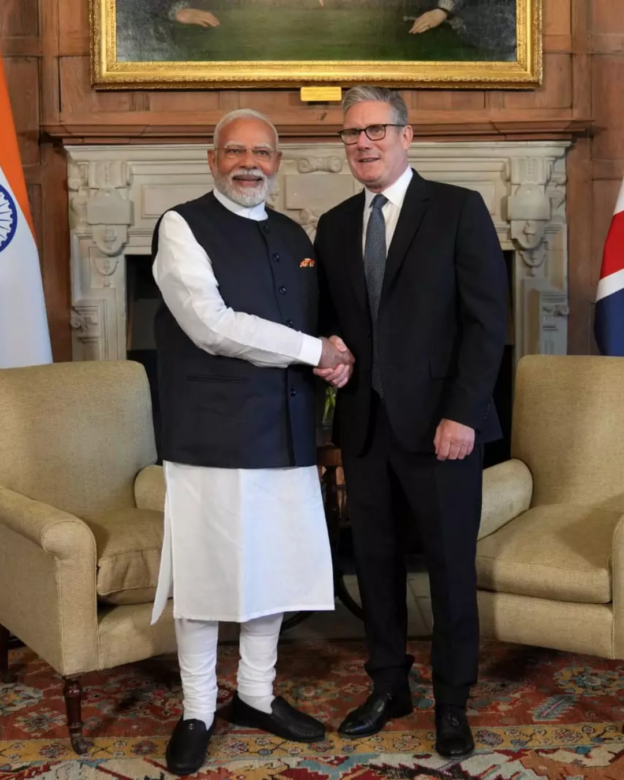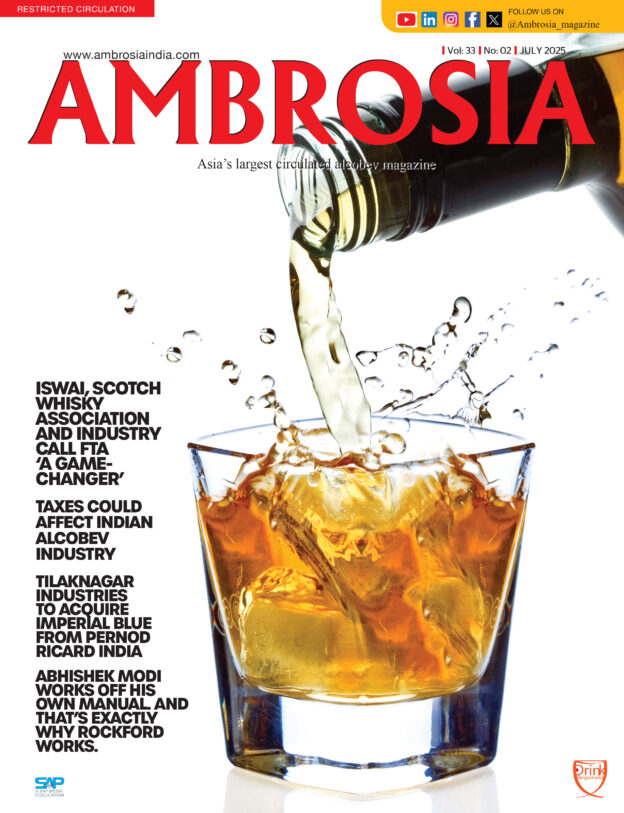India and the UK signed a landmark free trade agreement (FTA) on July 24th with the aim to improve market access and boost bilateral trade by around $34 billion annually. The agreement was signed in the presence of Prime Minister Narendra Modi and his British counterpart, Keir Starmer. The agreement was signed by the Indian Commerce Minister, Piyush Goyal and his counterpart Jonathan Reynolds.
The trade deal, finalised after three years of negotiations, is expected to benefit 99% of Indian exports from tariffs and streamline the export process for British companies exporting Scotch whisky, cars and other products to India. This will also help expand the overall trade basket.
The deal is expected to increase bilateral trade by $34 billion annually, making it the most significant trade pact for the UK since leaving the European Union and the most comprehensive one India has signed. Items like the world-famous Scotch whisky, British-made cars, cosmetics and medical devices are among many other products that will become cheaper in India as the nation’s decide to lower the tariff rates.
‘Britain is open for business’ said Starmer and added ‘It is a deal that will bring huge benefits to both of our countries, boosting wages, raising living standards and putting more money in the pockets of working people. It is good for jobs, it is good for business, cutting tariffs and making trade cheaper, quicker and easier.’
He announced GBP 6 billion in investment and export between India and the UK which is expected to create more than 2,200 jobs for British workers.
India’s average tariff on UK products will drop from 15% to 3% which means British companies selling products to India from soft drinks and cosmetics to cars and medical devices will find it easier to sell to the Indian market.
Whisky producers will benefit from tariffs slashed in half, reduced immediately from 150% to 75% and then dropped even further to 40% over the next ten years – giving the UK an advantage over international competitors in reaching the Indian market, he said.
Prime Minister Modi said “This agreement is not merely an economic partnership, but a plan for shared prosperity,” adding that the UK trade agreement ensures better market access for Indian textiles, footwear, gems and jewellery, seafood and engineering goods.
“I am delighted that after many years of hard work, a Comprehensive Economic and Trade Agreement has been concluded between our two countries today,” he added.


